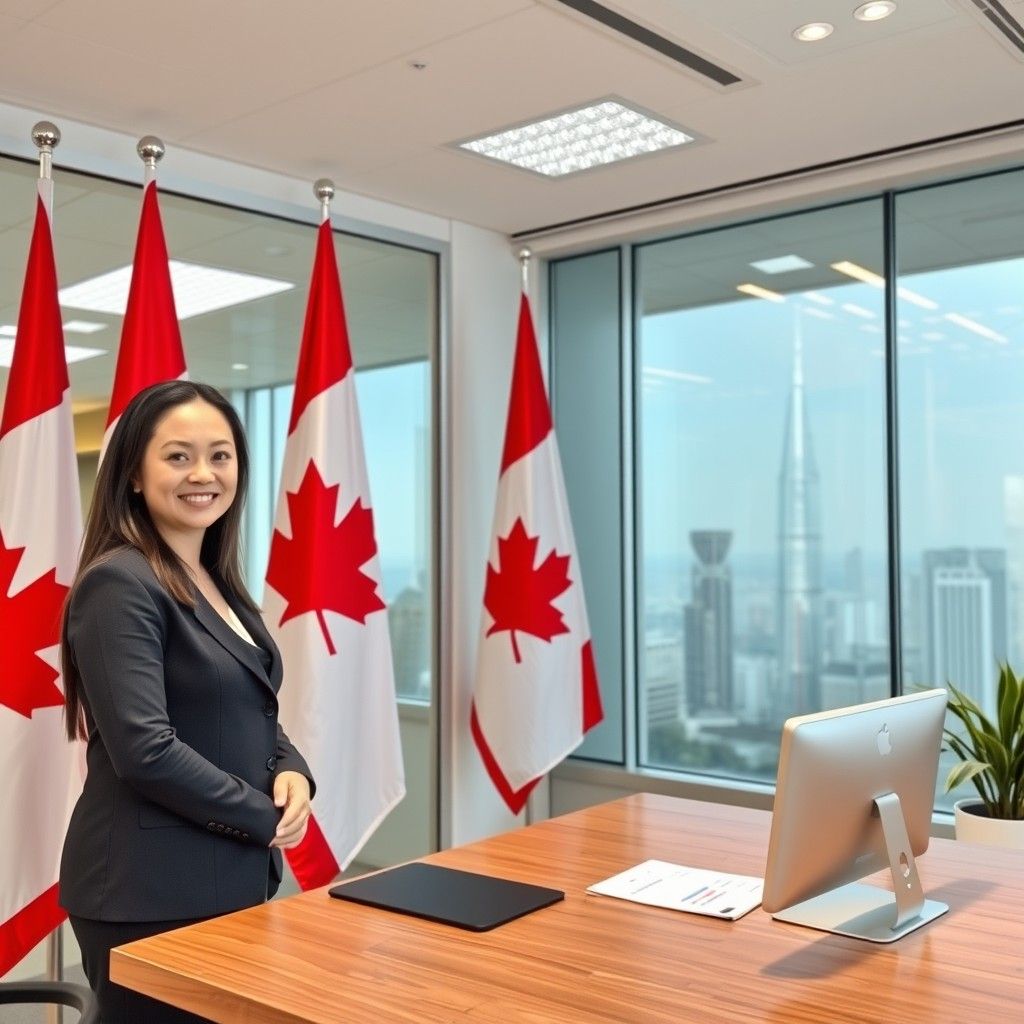Germany, one of Europe’s strongest economies, is a prime destination for skilled workers seeking job opportunities with visa sponsorship. Securing a visa sponsorship job in Germany requires a strategic approach, combining thorough research, proper documentation, and effective networking. This guide outlines a step-by-step process to help you achieve this goal while integrating insights from related topics such as finding visa sponsorship jobs in Europe and leveraging global resources.
Step 1: Understand the Basics of Visa Sponsorship Jobs
A visa sponsorship job involves an employer who supports your work visa application, ensuring you meet the legal requirements to work in Germany. This sponsorship typically includes documentation and sometimes financial support for obtaining the necessary visa and residence permits. For international applicants, this is a crucial factor when considering employment opportunities abroad.
Key Features of Visa Sponsorship Jobs
- Employer Commitment: The employer demonstrates their need for a foreign worker by providing proof that the position cannot be filled locally.
- Legal Compliance: The sponsorship ensures compliance with immigration laws and labor market regulations in Germany.
- Facilitated Relocation: Some employers may offer additional relocation support, such as housing assistance, language training, and onboarding services.
Why Germany?
Germany is a leading global destination for skilled workers, thanks to its thriving economy, excellent work-life balance, and robust social security system. The country’s labor market prioritizes professionals in high-demand sectors, such as technology, healthcare, and engineering, where there is a shortage of local talent.
Additionally, the Blue Card Program is a major incentive for qualified non-EU workers. This program simplifies the visa application process for highly skilled professionals with university degrees and job offers that meet specific salary thresholds. The Blue Card not only grants work authorization but also provides a pathway to permanent residency in Germany, making it an attractive option for long-term career planning.
Step 2: Research Demand Occupations in Germany
Understanding the labor market needs is critical to identifying job opportunities that are likely to offer visa sponsorship. Germany’s Federal Employment Agency and other governmental bodies regularly publish lists of in-demand professions. These lists help employers and job seekers identify roles experiencing significant skill shortages.
High-Demand Professions in Germany
- IT Specialists: With the rapid digitalization of industries, Germany has a growing demand for software developers, data analysts, cybersecurity experts, and IT consultants.
- Engineers: Fields such as mechanical, electrical, and civil engineering are perennial favorites due to Germany’s industrial strength and infrastructure projects.
- Medical Professionals: Doctors, nurses, and other healthcare workers are urgently needed, particularly in rural areas where healthcare facilities face staffing challenges.
- Scientists and Researchers: Germany’s emphasis on innovation fuels demand for researchers in natural sciences, biotechnology, and environmental studies.
- Skilled Trades: Professions like electricians, plumbers, and machinists are also in demand, particularly in construction and manufacturing.
Tips for Researching Demand Occupations
- Visit Official Websites: The Federal Employment Agency (“Bundesagentur für Arbeit”) and Make it in Germany are reliable sources for labor market insights.
- Monitor Industry Trends: Follow industry news and reports to identify emerging fields and technologies creating job opportunities.
- Engage with Professionals: Use LinkedIn or professional networking events to connect with individuals already working in your target field.
Focusing on these high-demand areas significantly increases your chances of securing visa sponsorship. Moreover, this aligns with strategies outlined in resources like “Guide to Visa Sponsorship Jobs in Europe for Skilled Workers,” which emphasize aligning skills with market needs.
Regional Considerations
While cities like Berlin, Munich, and Frankfurt offer abundant opportunities, consider exploring smaller towns and regions where competition may be less intense. Employers in these areas are often more willing to sponsor visas to attract international talent.
By tailoring your job search to Germany’s labor market needs and leveraging official resources, you can position yourself as a highly desirable candidate for visa sponsorship opportunities.
Step 3: Build a Competitive Profile
Building a strong professional profile is essential for attracting employers offering visa sponsorship. Here’s how to make your profile stand out:
Educational Qualifications
Germany places a high value on formal education and certifications. To ensure your qualifications meet German standards:
- Use the ANABIN database to verify whether your degree is recognized in Germany. This step is crucial for regulated professions like engineering and healthcare.
- If your degree doesn’t meet German standards, consider pursuing additional certifications or supplementary courses that align with industry requirements.
- For IT and tech-related jobs, certifications such as AWS, Cisco, or Microsoft can significantly enhance your employability.
Language Skills
While many German companies operate in English, especially in tech and multinational sectors, learning German is a significant advantage. Here’s why:
- Increased Employability: Proficiency in German (at least B1 level) opens up opportunities in smaller companies and roles requiring client interaction.
- Integration: Speaking the language helps you integrate into the workplace and local culture more effectively.
- Learning Resources: Enroll in recognized courses like Goethe-Institut or online platforms like Duolingo and Babbel. Some employers may even sponsor language training as part of your relocation package.
Work Experience
Your professional experience should align with the demands of the German job market:
- Highlight your expertise in industries like IT, engineering, or healthcare, as these are high-demand sectors.
- Tailor your resume to emphasize skills and achievements relevant to the roles you’re applying for.
- If you’re also considering other countries, such as Canada, explore strategies outlined in “How to Secure a Visa Sponsorship Job in Canada.” These insights can provide transferable strategies for highlighting your skills.
Step 4: Leverage Top Websites to Find Visa Sponsorship Jobs
The internet offers powerful tools to connect with employers seeking international talent. Here are the best platforms to find visa sponsorship jobs in Germany:
1. LinkedIn
- Job Search: Use keywords like “visa sponsorship Germany” to identify relevant openings.
- Networking: Connect with recruiters, HR professionals, and employees from target companies. Participate in discussions and join groups related to your industry.
- Profile Optimization: Ensure your LinkedIn profile is updated with a professional photo, detailed experience, and key skills.
2. Indeed Germany
- Custom Filters: Filter job listings for opportunities specifically mentioning visa sponsorship.
- Alerts: Set up email alerts to stay updated on new job postings.
- Localized Content: Search in German (if possible) to access additional listings.
3. EURES (European Employment Services)
- Government-Endorsed Platform: EURES is a European Commission initiative offering job opportunities across Europe.
- Visa Support Information: The platform provides resources on visa sponsorship and relocation.
- Skilled Worker Focus: Particularly useful for highly skilled professionals looking to move within Europe.
4. StepStone
- Industry Focus: This leading German job portal is especially useful for roles in IT, engineering, and business sectors.
- Employer Branding: Explore detailed profiles of companies that frequently hire international talent.
- Application Tools: Use built-in tools to streamline your application process.
5. Xing
- Regional Networking: Xing is similar to LinkedIn but focuses on German-speaking countries.
- Job Listings: Search for visa sponsorship jobs and connect with regional professionals.
- Community Engagement: Join industry-specific groups to gain insights and build connections.
These platforms align with the strategies highlighted in “Top 5 Websites to Find Visa Sponsorship Jobs Anywhere in the World,” offering a comprehensive starting point for your job search. Use these tools effectively to maximize your chances of success.
Step 5: Target Companies Offering Visa Sponsorship
Targeting companies with a history of hiring international talent can significantly streamline your job search. Many renowned German companies actively recruit foreign workers and offer visa sponsorship to fill skill gaps in their workforce.
Leading Companies Offering Visa Sponsorship in Germany
- SAP: A global leader in technology and software solutions, SAP regularly hires IT specialists and data scientists.
- BASF: This chemical manufacturing giant often recruits engineers, chemists, and supply chain professionals.
- Siemens: As a prominent engineering and technology company, Siemens offers opportunities in automation, renewable energy, and digitalization.
- Volkswagen: Known worldwide for its automotive excellence, Volkswagen hires mechanical engineers, IT experts, and production specialists.
- Deutsche Telekom: Germany’s telecommunications leader seeks talent in network engineering, cybersecurity, and customer experience.
Tips for Researching Target Companies
- Company Websites: Visit the career sections of these companies to explore current openings and eligibility criteria for international candidates.
- Networking Events: Attend job fairs and industry events to meet company representatives and learn about their hiring practices.
- LinkedIn Connections: Follow these companies and connect with employees to gain insights into their recruitment process.
Targeting these companies aligns with insights from the “List of Companies Offering Visa Sponsorship Jobs for Immigrants,” making your job search more focused and efficient. Additionally, exploring industries with transferable skills, as discussed in “Top 10 Visa Sponsorship Jobs in Canada You Can Apply for Today,” can broaden your opportunities.
Step 6: Craft an Outstanding Application
Your application materials play a critical role in securing a visa sponsorship job. German employers value professionalism, attention to detail, and clear communication. Here’s how to craft a standout application:
Resume (Lebenslauf)
German resumes are concise yet comprehensive. Key features include:
- Length: Limit your resume to 1-2 pages, focusing on relevant details.
- Content: Include your educational background, work experience, technical skills, and language proficiency.
- Professional Photo: Attach a professional headshot at the top of your resume (a common practice in Germany).
- Contact Information: Provide updated contact details, including your phone number, email, and LinkedIn profile.
- Customizations: Tailor your resume for each job application to highlight skills and experiences that match the job description.
Cover Letter (Anschreiben)
A personalized cover letter is your opportunity to showcase your interest in the role and explain why you’re the perfect fit. In Germany, hiring managers highly value structured and professional correspondence.
- Introduction: Address the hiring manager by name, if possible. Mention the specific position you are applying for and how you came across the job posting.
- Highlight Your Fit: Use the main body to explain how your skills, experiences, and qualifications align with the job requirements. For example, if applying for an engineering role, emphasize your technical expertise, successful projects, and relevant certifications.
- Cultural Adaptability: Show your willingness to integrate into the German work culture and community. Mention language skills or steps you’ve taken to familiarize yourself with German professional practices.
- Call to Action: Conclude by expressing enthusiasm about the opportunity and inviting the recruiter to contact you for further discussions.
Additional Documents
German employers often require supplementary documents to assess your application comprehensively:
- References: Include letters or contact details of past employers who can vouch for your professional capabilities.
- Certificates: Provide copies of educational qualifications, professional certifications, and language proficiency results.
- Work Samples: For fields like IT, design, or engineering, consider attaching a portfolio showcasing your projects or achievements.
Remember, your application’s quality and relevance can make or break your chances of getting hired.
Step 7: Network Strategically
Networking is an essential tool for enhancing your job search, especially when aiming for opportunities that offer visa sponsorship in Germany. By connecting with professionals in your field, you can uncover hidden job opportunities, gain valuable insights, and expand your professional network. Here’s how you can network effectively:
Attend Job Fairs and Events
Germany hosts numerous international job fairs, both in-person and virtual, where employers actively seek skilled workers from around the world. These events provide an excellent opportunity to meet recruiters and company representatives, allowing you to showcase your skills and directly discuss job opportunities. Major German cities such as Berlin, Munich, and Frankfurt regularly organize job fairs that cater specifically to international talent. For example, events like the German Career Day or Talent Networking Events bring together top companies from diverse industries, all looking for highly skilled employees.
In addition to physical job fairs, many organizations now offer virtual job fairs that allow you to interact with recruiters remotely. These online events are particularly beneficial for international applicants, as they eliminate geographical barriers and allow you to connect with potential employers regardless of your location. Take full advantage of these opportunities by preparing your resume, portfolio, and elevator pitch ahead of time.
Utilize Social Media
Social media platforms such as LinkedIn and Xing (a popular networking platform in Germany) are powerful tools for job seekers looking to connect with employers offering visa sponsorship. By joining relevant groups and following industry-specific pages, you can stay up-to-date with job openings and recruitment news. Here’s how to use these platforms effectively:
- LinkedIn: Create a professional LinkedIn profile that highlights your skills, experience, and interest in working in Germany. Join LinkedIn groups focused on German job opportunities, particularly those related to your industry. Participate in discussions, engage with recruiters, and connect with professionals who may help you in your job search. LinkedIn also provides an excellent platform for researching companies that offer visa sponsorship, and you can directly message hiring managers or recruiters to inquire about available positions.
- Xing: This German counterpart to LinkedIn is widely used by employers and job seekers in Germany. Create a detailed Xing profile, and search for groups and discussions related to your industry. Engaging with groups focused on topics such as visa sponsorship and job opportunities in Germany can significantly enhance your visibility and increase the likelihood of receiving job offers.
Alumni Networks
If you’ve studied in Germany or have connections with professionals in your field, leveraging alumni networks can be incredibly beneficial. Universities and academic institutions in Germany often maintain alumni networks that provide access to a wealth of knowledge and opportunities. These networks can connect you with former students who have successfully navigated the German job market, and they may offer invaluable advice and even recommend you for positions within their companies.
If you haven’t studied in Germany, look for industry-specific alumni networks or groups related to your field. Many organizations and educational institutions worldwide maintain strong relationships with professionals working in Germany. These connections can open doors and provide mentorship as you pursue your career goals.
For those considering educational pathways to advance career prospects, insights from resources like “How to Apply for a Fully Funded Scholarship in the USA” may offer strategies for leveraging education as a stepping stone toward career opportunities abroad. This can also apply to Germany, where pursuing further studies or certifications might enhance your employability and increase your chances of visa sponsorship.
Step 8: Apply for Jobs Strategically
In your search for a job that offers visa sponsorship, applying strategically is key. The German job market can be competitive, but by focusing on specific job openings and tailoring your applications, you increase your chances of success. Here’s how to apply effectively:
Focus on Job Openings Explicitly Stating Visa Sponsorship Options
To maximize your efforts, make sure the jobs you’re applying for explicitly mention visa sponsorship options. Many German companies clearly state in their job postings whether they are willing to sponsor work visas for international candidates. These roles are ideal, as they guarantee that the company is already familiar with the visa process and is open to hiring professionals from abroad.
Job boards such as LinkedIn, Indeed, and Glassdoor are great resources for filtering job postings based on visa sponsorship. Additionally, many company career pages will include this information, so it’s essential to review the job descriptions thoroughly. Look for terms like “Visa Sponsorship Available” or “Applicants from outside Germany welcome” to identify relevant positions.
Use Company Portals and Websites
In addition to general job boards, apply directly on company websites. Many German companies prefer candidates to apply through their own portals, which helps them manage the recruitment process more efficiently. This can also give you a direct line to the company’s recruitment team, ensuring that your application is viewed by the right people. Notable companies like SAP, Siemens, Volkswagen, and Deutsche Telekom have dedicated career pages where you can filter job listings based on criteria such as location, job function, and visa sponsorship.
By applying directly through these portals, you can ensure that your application reaches the right department and stands out among the large pool of applicants.
Customize Each Application
One of the most important aspects of applying for jobs in Germany is customizing each application for the specific job description. German employers value precision and attention to detail, so submitting a generic resume and cover letter will likely hurt your chances.
- Tailor Your Resume: Adjust your resume for each job, emphasizing your skills, experience, and qualifications that directly match the job description. Highlight any relevant technical skills, industry knowledge, and language proficiency (especially German). In your resume’s professional experience section, focus on achievements that demonstrate your ability to thrive in a role requiring visa sponsorship.
- Write a Customized Cover Letter: A well-written cover letter is essential. It should clearly explain why you’re interested in the position, how your skills match the job requirements, and your enthusiasm for contributing to the company. Be sure to emphasize your ability to relocate and your willingness to adapt to the German workplace culture. Demonstrating knowledge of the company’s values and aligning them with your own will make a strong impact.
By focusing your efforts on roles that clearly offer visa sponsorship, applying directly to companies through their portals, and tailoring each application, you increase the likelihood of receiving positive responses from recruiters.
By strategically networking and applying for jobs that align with your skills and visa requirements, you can streamline your job search process and enhance your chances of securing a position in Germany. With persistence, strategic applications, and a well-crafted network, you’ll be one step closer to securing a job offer with visa sponsorship, allowing you to pursue your career in Germany.
Step 9: Prepare for Interviews
Common Questions
- Why do you want to work in Germany?
- How do your skills align with this role?
- Are you open to learning German?
Cultural Awareness
Understand German workplace etiquette, such as punctuality and professionalism. Display enthusiasm for contributing to the company’s goals.
Step 10: Navigate the Visa Application Process
Once you secure a job offer, your employer will initiate the visa sponsorship process. Follow these steps:
- Obtain a Job Contract – This is mandatory for your visa application.
- Apply for a Work Visa – Submit your application at the German consulate or embassy in your country.
- Register for a Residence Permit – Upon arrival in Germany, apply for a residence permit.
Bonus: Fully Funded Scholarships and Opportunities
While seeking visa sponsorship jobs, you might explore scholarships that provide pathways to work opportunities. For example:
- Best Fully Funded Scholarships in the UK for International Students can inspire your approach to leveraging education as a gateway to jobs.
Conclusion
Securing a visa sponsorship job in Germany is achievable with thorough research, strategic applications, and consistent networking. Use global job platforms, focus on demand-driven professions, and leverage educational opportunities to increase your chances. By following this guide and integrating insights from global trends, you’re well on your way to a successful career in Germany.




